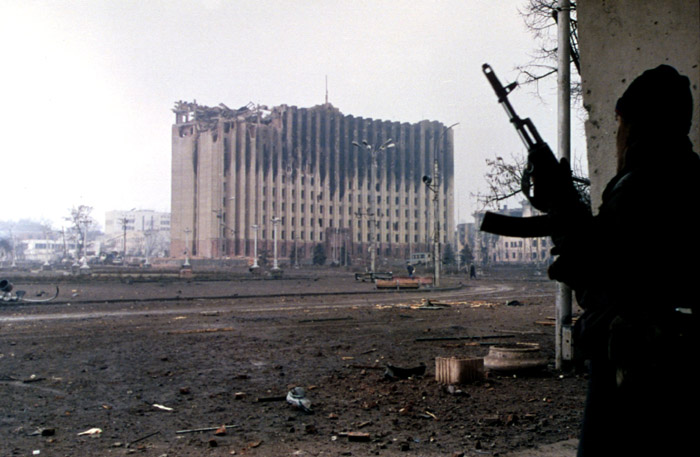 Turkey has been the unequivocal star of this week's news agenda. Turkish cable news has featured a mindless stream of images featuring mortars being fired into the anonymous distance, well-equipped commando units waiting at attention, and other staged military exercises involving men with big guns and intimidating face paint. While Erdoğan and Gül are bathing in the warm light of nationalist sentiment generated by the recent deaths of soldiers and policemen, as well as the Armenian genocide legislation, it is the opinion of this observer that the current media and diplomatic buildup will amount to nothing more than the usual sabre-rattling. It would be surprising if future military actions amounted to something more than limited raids and aerial assaults. Full-scale invasions are expensive propositions and Turkey doesn't exactly have the financial resources of the United States or even Russia.
Turkey has been the unequivocal star of this week's news agenda. Turkish cable news has featured a mindless stream of images featuring mortars being fired into the anonymous distance, well-equipped commando units waiting at attention, and other staged military exercises involving men with big guns and intimidating face paint. While Erdoğan and Gül are bathing in the warm light of nationalist sentiment generated by the recent deaths of soldiers and policemen, as well as the Armenian genocide legislation, it is the opinion of this observer that the current media and diplomatic buildup will amount to nothing more than the usual sabre-rattling. It would be surprising if future military actions amounted to something more than limited raids and aerial assaults. Full-scale invasions are expensive propositions and Turkey doesn't exactly have the financial resources of the United States or even Russia.On Wednesday, a spokesman for the Russian Foreign Ministry issued a comment that was rather surprising in light of his country's recent experience with full-scale invasions.
We urge all parties in the conflict to exercise maximum restraint and demonstrate the ability to assess the long-term effects of their actions, including those that might further aggravate the situation.This comment seemed rather strange in light of the fact that Turkey's ordeal with the PKK is ultimately an issue of a minority ethnic group's will to politically separate. In many regards, Turkey's situation in northern Iraq and south-eastern Anatolia is analogous to Russia's debacle in Chechnya. Depending on one's point of point of view, the underdogs were either "freedom fighters" or "terrorists". Over the years, Russia has had its fingers burnt in a number of such blistering-hot pies ranging from Afghanistan to the northern Caucasus.
 While there was some oil to be lost if Chechnya had successfully broken away, the main threat was the dismemberment of the very ethnically and regionally-complex puzzle that is the Russian Federation. This was especially a concern when Boris Yeltsin was proving rather incapable of running the show in Moscow. Vladimir Putin arguably reignited the disastrous campaign in Chechnya in order to rally the country around a single nationalist cause. Russian history is full of similar examples of the country's political leaders using the "foreign threat" to their political advantage. It would seem that Turkish politicians have often capitalized on the "PKK-threat" for this same purpose.
While there was some oil to be lost if Chechnya had successfully broken away, the main threat was the dismemberment of the very ethnically and regionally-complex puzzle that is the Russian Federation. This was especially a concern when Boris Yeltsin was proving rather incapable of running the show in Moscow. Vladimir Putin arguably reignited the disastrous campaign in Chechnya in order to rally the country around a single nationalist cause. Russian history is full of similar examples of the country's political leaders using the "foreign threat" to their political advantage. It would seem that Turkish politicians have often capitalized on the "PKK-threat" for this same purpose.Clearly, Russia's voice concerning the PKK-issue is not as potent as it would be for an event related to Armenia or Central Asia. It is quite possible that Russia has already established certain economic ties with the Kurdish government in northern Iraq, which they do not want compromised. Vladimir Putin is apparently scheduled to visit Iran in the very near future. Hopefully, we will gain some greater clarity concerning this rather surprising statement at that time.
2 comments:
Is all of this rhetoric a provocation to escalate matters by taking things out of their hands (as in the poker term)?
hi metin -
could you clarify a bit? who's provoking? and out of whose hands?
Post a Comment